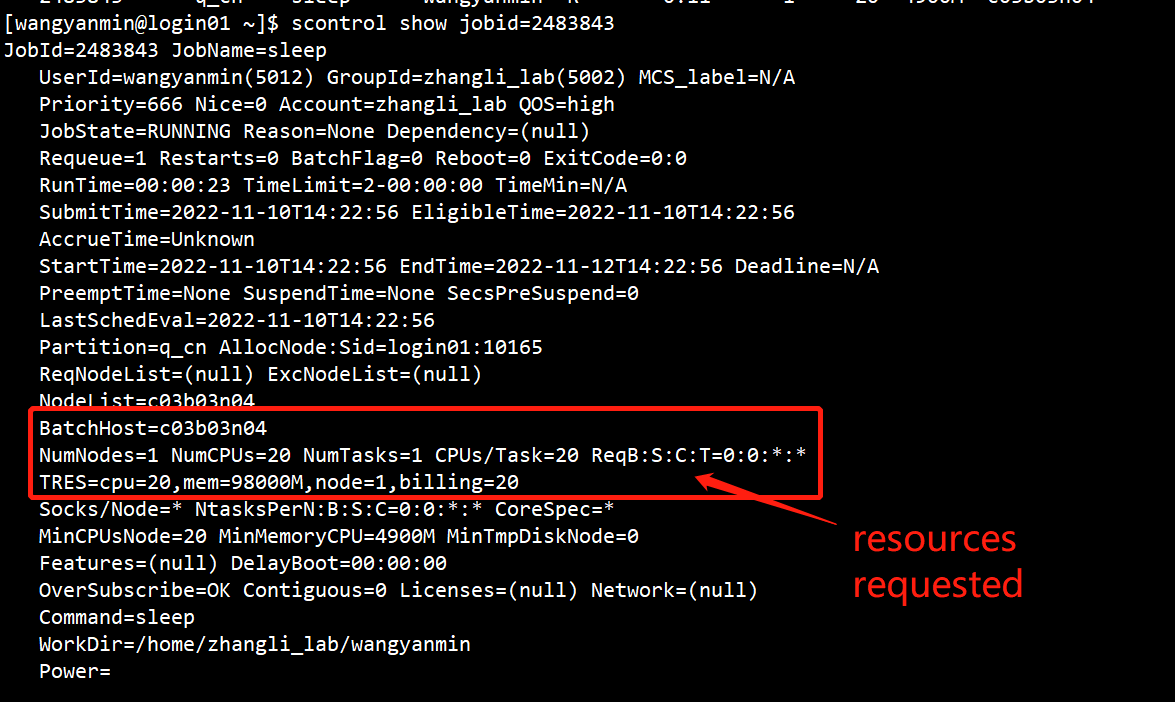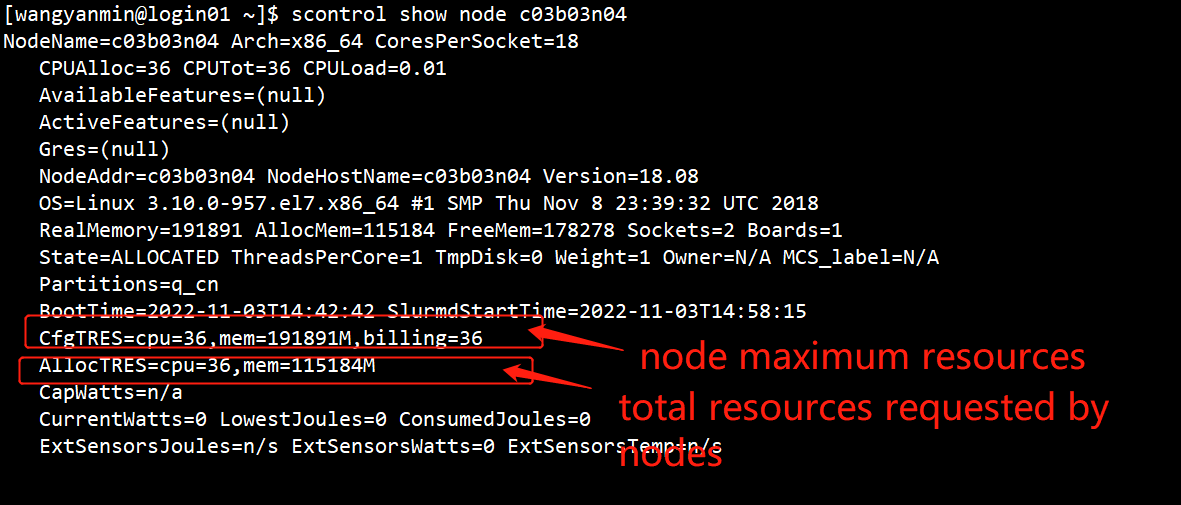-

Cluster usage
-
process
8-Job management
The idle state of each partition node can be queried through sinfo; it displays the idle state of all partition nodes in the cluster, idel means idle, mix means that part of the core of the node can be used, and alloc means occupied; the queue status will be constantly adjusted, and the specific update information can be followed Computing Center website: http://hpc.cibr.ac.cn

-a, --all # show all partitions ( (including hidden and those inaccessible)
-d, --dead #View unresponsive nodes in the cluster
-l, --long #long output -- show more information
-n, --nodes=NODES # Display information about the specified node, separated by commas if multiple nodes are specified
-o, --format=format #Output in the specified format
-p, --partition=PARTITION #Display the information of the specified partition, if multiple partitions are specified, separate them with commas;
Help options:
--help # Display the help information of the sinfo command;
View the queuing of submitted jobs;
job #View the job information submitted by yourself
squeue #View job information submitted by all users
By default, the output contents of j ob and squeue are as follows: job number, partition, job name, user, job status, running time, number of nodes, number of CPUs requested, number of memory requested , and running nodes
JOBID PARTITION NAME USER ST TIME NODES CPUS MIN_M NODELIST
By default, the output of squeue is as follows, namely job number, partition, job name, user, job status, running time, number of nodes, running node
JOBID PARTITION NAME USER ST TIME NODES NODELIST(REASON)
Common parameters of squeue
--help # Display the help information of the squeue command;
-A < account_list > # Display the jobs of all users under the specified account, separated by commas if there are multiple accounts;
- i
-j < job_id_list > #Display the job information of the specified job number, if there are multiple job numbers, separate them with commas;
-n < name_list > #Display job information on the specified node, separated by commas if multiple nodes are specified;
-t < state_list > #Display the job information of the specified state, if multiple states are specified, separate them with commas;
-u < user_list > #Display the job information of the specified user, if there are multiple users, separate them with commas;
-w < hostlist > #Display jobs running on the specified node, separated by commas if there are multiple nodes;
-l, --long # output long report
Display job /node information through sacct and scontrol show job / node ;
Use sacct to query information about jobs that have ended, as follows:
sacct -j 899775
Output job information in a specified format:
sacct --format= jobid,user ,alloccpu,allocgres,state%15,exit -S 2022-08-01
Note: Detailed parameters can be viewed through sacct –help
jobid resource of the running job through scontrol show job :

show node via scontrol View the application resources of the occupied node :

Cancel submitted jobs in the queue:
scancel jobid
scancel common parameters
--help # Display the help information of scancel command;
-n < job_name > # Cancel the job of the specified job name;
-p < partition_name > # Cancel the job of the specified partition;
-t < job_state_name > # Cancel the job of the specified state, "PENDING", "RUNNING" or "SUSPENDED";
-u < user_name > # Cancel the job under the specified user;
© 2023 by Personal Life Coach. Proudly created with Wix.com ICP备案号:京ICP备18029179号





